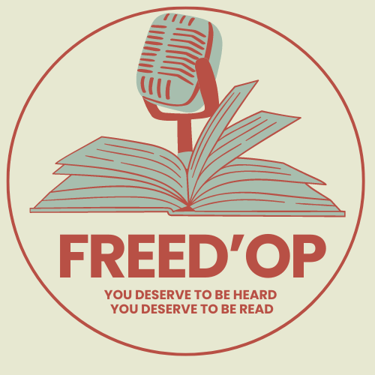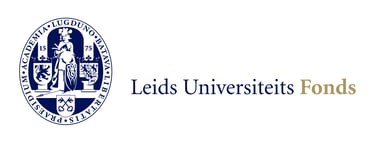While saying goodbye to Istanbul 2/3
Brody L.
2/21/2025
“You are not entitled to ask God to show you the miracles. God has put the wisdom you need in the ever uncorrupted Quran. You do not need more evidence or proof to believe in God.”
Indeed, I realized that it was time for me to change a subject. After having a one hour discussion on Islam with an imam, under the grand dome of Süleymaniye Mosque, I was once again blocked by the huge wall called “the Leap of Faith”. I spent years wandering in Hong Kong, Paris, and most provinces in the Netherlands, to visit churches. Every time I set my foot into the gate of a church, I hoped I would yield. Secretly, I was hoping for this imam to convert me. But every time, when I immersed myself in the enormous structure or the majestic details of a religious site, I saw more fear towards the death of mortals than the divine mercy of God. So we, this Egyptian imam and I, started to talk about our home
“I was born in Egypt. I first came to Türkiye to study Business Management. But later I decided to become an imam.”
“I live in the Netherlands for now. I study there.”
The imam’s tone suddenly changed, becoming hesitant and soft, almost cautious. The imam who, in accordance with God’s will, had been leading the faithful, strolling confidently across the carpet, and conveying scripture to agnostics, transformed in a single sentence into a humble Egyptian man. He asked, ‘What do you think of Egypt?”
When traveling to many places, locals often ask me this question: ‘What do you think of us?’ However, in the United States, Netherlands, and France, people never ask such a question. In their view, it is the outsiders who should be observed and evaluated, certainly not themselves. Instead, they ask: “How are you adapting?”
Turkish writer Orhan Pamuk, a Nobel laureate, once said, “To some extent, we are all concerned about how foreigners view us. What our cities look like in the eyes of Westerners.” Oh yes, Edward Said. He seems to be everywhere.
The East rediscovers itself through the West, uncovering both its traditional aspects and encountering its own modernity. French writers like Gérard de Nerval brought the modern Parisian gaze to Istanbul, claiming the city before its own inhabitants. This made Orhan Pamuk feel like an outsider in his own city, creating a relationship of simultaneous closeness and distance. Modernity is like a transplanted perspective, fragmenting tradition and embedding it into the fractured modern life, weaving it into a new landscape.
In reality, Pamuk never truly left this city. Apart from brief wanderings, he has always lived in various districts, never straying far from the houses, streets, and neighborhoods of his childhood. We all know Istanbul as an ancient city, the capital of the Byzantine Empire, once known as Constantinople. Ebru Boyar’s A Social History of Ottoman Istanbul tells the story of the city’s final day as an imperial capital: May 29, 1453, when the Ottoman Empire conquered Constantinople. Yet, in his book Istanbul: Memories of a City, Pamuk described this day: “For Westerners, May 29, 1453, is the Fall of Constantinople, while for Easterners it’s the Conquest of Istanbul.” Istanbul is indeed a city caught in the rift between Eastern and Western civilizations.
As I was leaving the mosque, I saw O crossing the lawn, stepping over white stone slabs, walking towards me. Perhaps the imam truly had some mysterious connection with the divine, for his impeccable timing meant he hadn’t kept me in conversation for too long, sparing O from a long wait.
We walked down from the hill, towards the Grand Bazaar. We passed by a film crew, with several men smoking and fiddling with expensive cameras. Two meticulously preserved 1960s cars were parked in front of two dilapidated residences. Deep in the alley, I spotted a few good-looking Turkish men and women who appeared to be actors. This scene stood in stark contrast to the shopping malls and newly tiled houses just a few dozen meters away. O told me that when the Ottoman Empire collapsed, many Greeks and Armenians fled hastily, leaving their properties unattended, and their descendants often were unaware of these ancestral assets. As a result, this unadorned, decaying neighborhood is now used by the Turkish television industry to film series set in the early days of the republic.
Strangely, the decaying residences are the living proof of the once-existed East. “Westernization” is precisely the focus of the gaze of modernity, giving Istanbul a new and strange face beyond its Ottoman traditions. This transformation was so profound that Pamuk, who grew up in the city, found the descriptions of harems, Ottoman costumes, and rituals by foreigners to be vastly different from his own experiences, as if they were describing someone else’s city.
Pamuk transforms himself into a “stranger” in his native land. He invites us to gaze upon Ottoman traditions and the beautiful scenery atop its ruins with fresh eyes, to appreciate Istanbul’s back streets and unknown corners, “the accidental beauty of poverty and historical decay.” More importantly, to see and appreciate these, we must follow Pamuk and first “become a ‘stranger’.” Then we can observe the picturesque beauty amidst the ruins: “a collapsed wall, a wooden mansion, once grand, now dilapidated and abandoned, a fountain whose waters have ceased to flow, a factory that hasn’t produced anything for eighty years, a building in ruins, rows of houses abandoned by Greeks, Armenians, and Jews when nationalist governments oppressed minorities, a lopsided house leaning to one side, two buildings leaning against each other as cartoonists like to depict, an endless succession of domes and roofs, a row of houses with distorted window frames.” These beautiful scenes are painted through the eyes of a stranger, for to locals they only signify poverty, decay, despair, and ugliness.
We walked back along İstiklal Avenue (meaning Independence Avenue) to Taksim Square, passing by ruins, gift shops, crowded dessert stores, alleys with scaffolding, classical but slightly decaying buildings, uneven cobblestone paths, and broken, misshapen steps, interspersed with burnt out cigarette butts. Indeed, travel is a journey along the wrinkles of the earth, entering a realm of complete bewilderment.
On the terrace of a bar, we slowly sipped our beers. We looked through the night, through Bosphorus, the lights of Istanbul were so far and so near.Beside us were various young people, smoking, their faces bearing youthful expressions, a nonchalant attitude towards the night. I made my way through the crowd to the restroom. Men were arguing loudly in Turkish, but with a friendly atmosphere. Most of the girls were wearing makeup. One girl, having had too much to drink, was dancing on a chair wearing only a bra, while others laughed carelessly. Just another day in Istanbul.
I returned to the table, took another sip of beer, and like everyone else, lit a cigarette. I was happy — in this early morning in Istanbul, I was exactly the same as the young people around me, no different at all.
I raised my glass and drank it all at once. Looking at O’s face, I suddenly recalled the theological discussion with the imam in the afternoon. I am indeed afraid of death, so at a time when everyone is fleeing from religions, I plunge into theology seeking certainty. But I understand that I’ve long known this truth: live, let the last few days slip away quietly, indulge in drinking, for tomorrow might be the end of days.
Waking up with completely red eyes near noon, I found myself already being on Wednesday. Someone in the hostel kept the air conditioner above 28 degrees all night. Wearing sunglasses, I jumped into the city again, knowing Istanbul would show me another side of her again.
Naturally, I made my way towards Hagia Sophia. It stood before me, a colossal fortress enveloped in scaffolding. Under the blue sky, I sat at the Fountain of Sultan Ahmed III, about twenty meters from Hagia Sophia. Two plump dogs were frolicking nearby; one rolled on its back while the other diligently sniffed its companion’s asshole. I hesitated, pondering whether the 25-euro entrance fee was justified. Simply standing before this a monumental fortress, contemplating its ancient history, had already evoked the “wow” that most travelers seek.
As I mulled this over, a Turkish policeman approached. He put his shoes on the steps of the three-hundred-year-old fountain and began washing his hands. In the distance, a group of men gazed at Hagia Sophia’s dome while smoking, their ashes falling onto the God-knows-how-old cobblestones. Suddenly, I found the situation rather amusing, realizing how pretentious my hesitation was. Everything would eventually succumb to the slow erosion of time. With this thought, I purchased a ticket and stepped into Hagia Sophia.
Hagia Sophia was a mosque, had been a museum, and for a millennium, was an Eastern Orthodox cathedral. During the Fourth Crusade, when the crusaders breached Constantinople, many soldiers from remote villages, upon witnessing the grandeur of Hagia Sophia, converted to Eastern Orthodoxy on the spot. Unsurprisingly, Hagia Sophia was filled with many Polish and Russian visitors. They came to pay homage to the remnants of the most legendary Orthodox cathedral, if a few mosaic paintings could still be called remnants.
As I stared at the Tympanum Mosaic, a group of Polish tourists, guided by their tour leader, craned their necks alongside me at precisely the same angle. Emperor Constantine and Emperor Justinian I humbly offered the city to Jesus Christ in the Virgin Mary’s arms. Suddenly, an old man approached, stumbling through broken English to ask the Polish guide where he could buy books about these mosaics. He seemed to be alone, visiting by himself. He tried to explain that he had paid fifty euros for a combined ticket but didn’t know where the museum was. His fragmented English made him embarrassed, and finally, he resignedly switched to Russian. He was Russian. He knew, of course, that any Polish person over fourty-five could understand Russian, as it had once been a mandatory language for Poles. However, he also knew that Polish people despised Russians and the Russian language. He timidly used English, while the Polish guide showed no inclination to speak Russian. I knew that all wars, massacres, and crimes inevitably affect everyone afterward, regardless of which side they’re on, just in different ways.
Part 2/3
Brody L.


